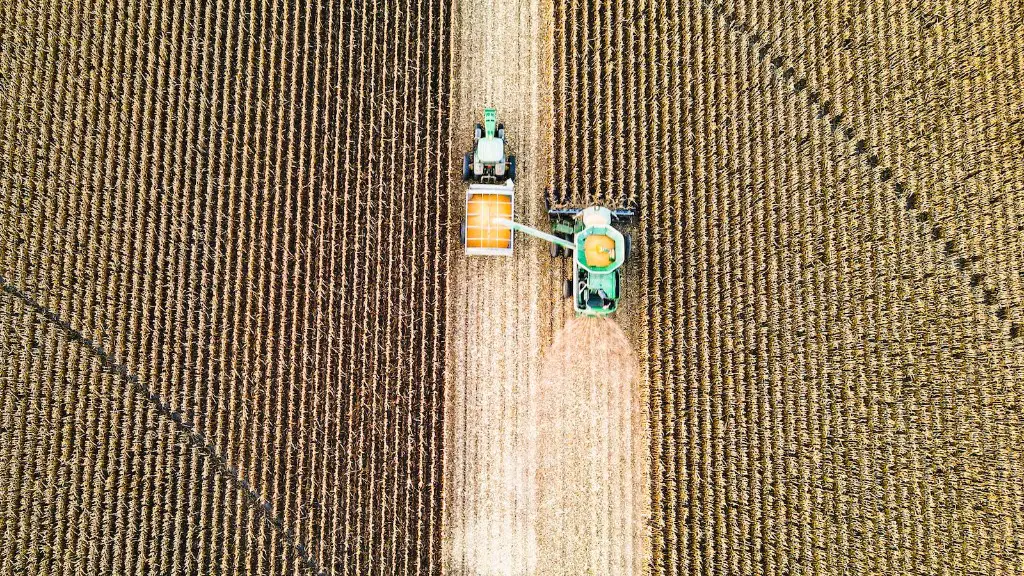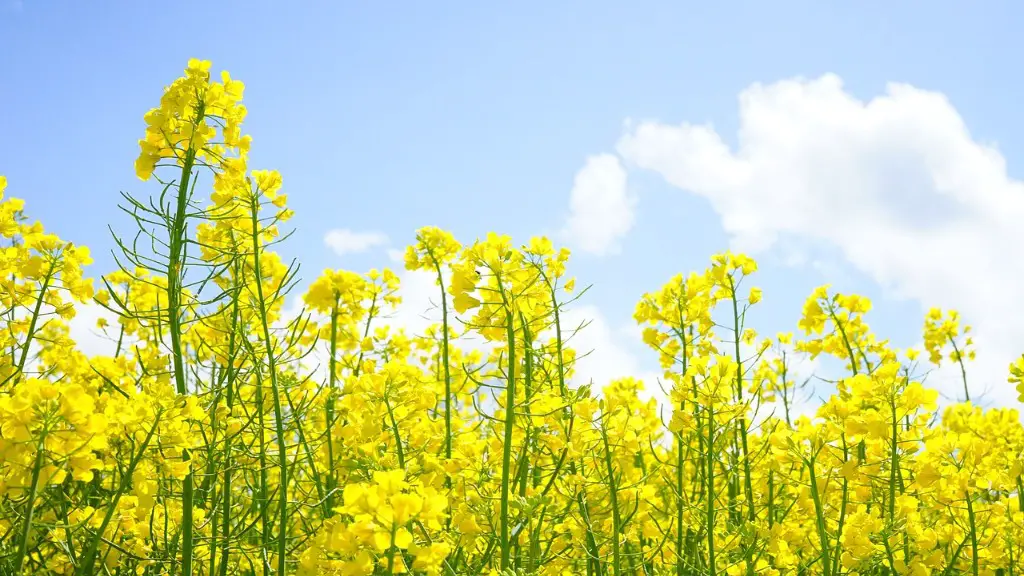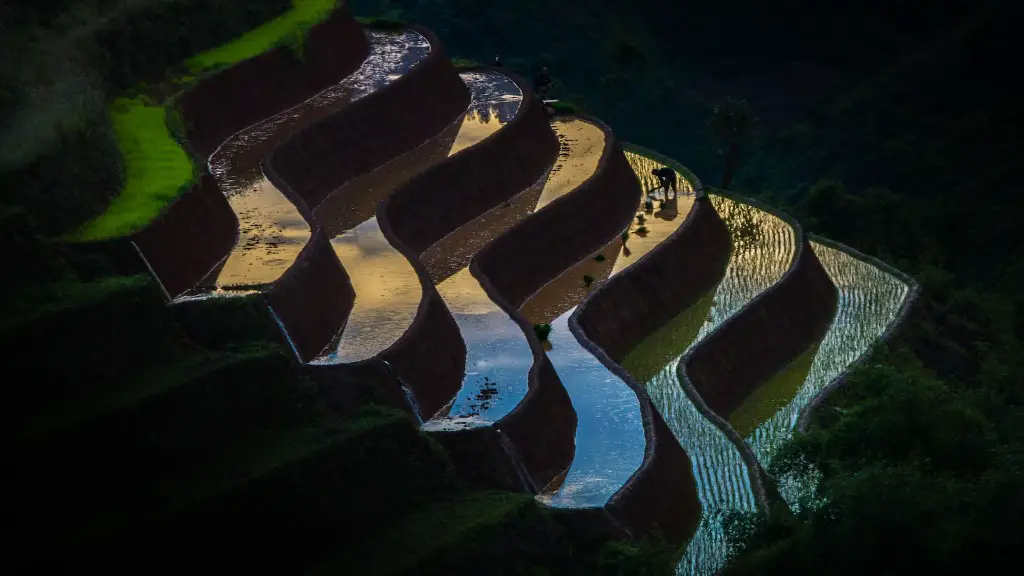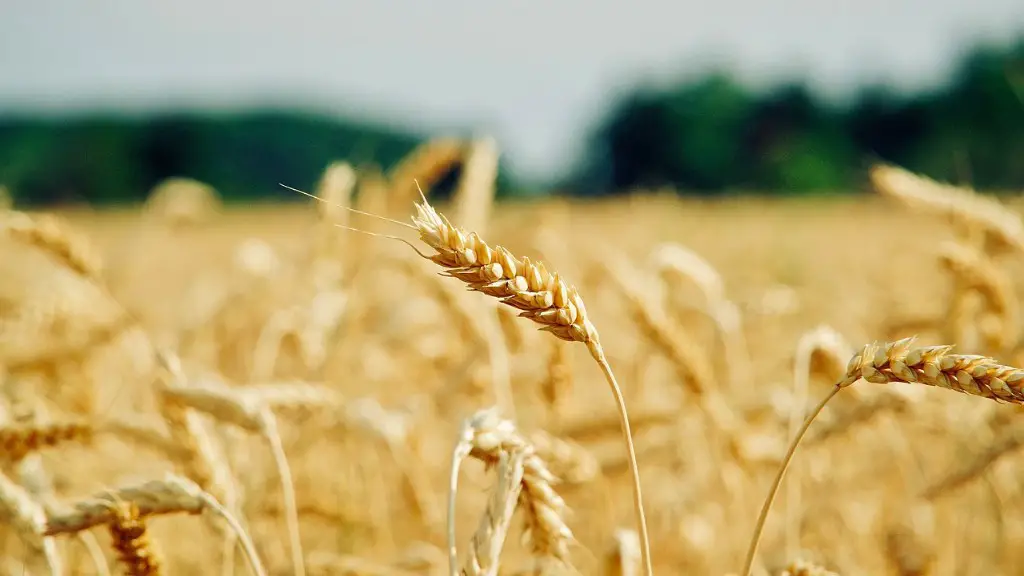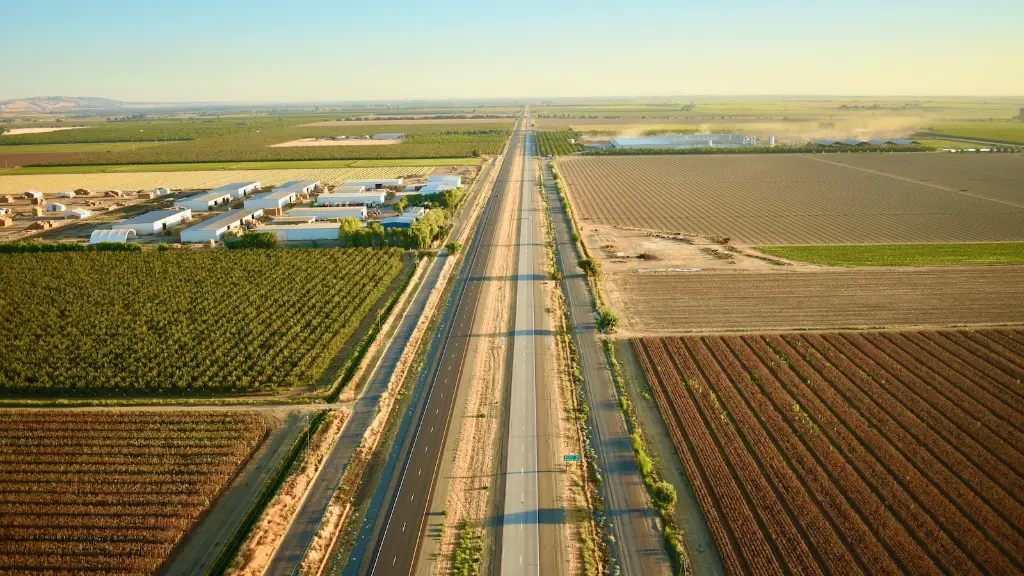Agriculture is something that has been around for generations and is often a major part of a society or culture. So, is agriculture a culture in and of itself? This is an interesting question that has no clear right or wrong answer. It is an intricate debate and one that is likely to have different opinions depending on who you ask. It is important to understand the complexities of this debate and what it could mean for modern societies and civilizations before drawing any conclusions.
Firstly, it is helpful to analyze what is meant by culture and what it encompasses. Culture is a broad term and may differ depending on the context, but broadly speaking it includes traditions and practices that are passed down from generations, as well as elements of history, language and art. It could be argued that agriculture could be seen as a culture if it holds elements of these elements and if it is a practice that is passed down from one generation to the next.
Secondly, it is essential to consider how agriculture and culture interact. It is a fact that the two are inextricably linked and that each has been shaped by the other over time. It is true that the development of new agricultural practices and processes can impact a culture such as supply and demand, dietary preferences, technology, and economy. For example, many parts of Asia have adopted a vegetarian diet due to their reliance on plant-based agriculture.
Thirdly, the impact of globalization must be taken into account. Globalization has been a major force, particularly in the last century, that has greatly changed the landscape of our world. Agriculture has been affected greatly by this process, with increased access to markets, new sources of capital, and advances in technology, to name a few. This has had an impact on culture, as it has opened up new possibilities and increased the circulation of information, practices and beliefs.
Fourthly, we must consider the social element of agriculture and culture. Many people are involved in the process of producing or consuming food, so it is essential to look at how these groups interact and how the social dynamics can affect the culture. For example, in India there is a tradition of caste and hierarchy, which is something that has been shaped by its history of agricultural practices.
Impact of Agriculture on Economy
Agriculture has often been heralded as the backbone of some of the world’s most formidable economies. But does it go so far as to be considered a culture itself? It is true that agricultural production and consumption can have a significant impact on the economy of a society or country. As mentioned earlier, the process of globalization has caused many changes in the sector, ranging from new sources of capital to advances in technology. This, in turn, has had a considerable economic ripple effect, with changes in prices, profits and jobs, leading to increased economic growth.
Furthermore, with the increasing urbanization of society, there has been a shift in the relationship between people and their environment. In some cases, this has led to a decrease in agricultural practices, as urban areas become more important economic hubs. This, too, can affect the economy, as agricultural activity can contribute to stimulating the economy through jobs, production and trade. Thus, it can be seen that agriculture can have an impact on the economy, which could point to the idea that it does fall into the category of culture in some ways.
It is also important to consider the role that agriculture plays in preserving cultural heritage. Agriculture has been around for thousands of years, and many of the traditional practices, customs and beliefs that have been passed down from generation to generation could be considered a culture in itself. Therefore, it could be argued that by preserving certain practices, we are also preserving a culture in some sense, as it is a way of maintaining a link to the past.
Finally, it is essential to look at the role of agriculture in modern society. As our populations continue to grow, there is the need for more efficient and sustainable practices of food production. Agriculture has been at the forefront of this development and has become increasingly advanced in recent years, with the use of technology and scientific advances. This is yet another example of how agriculture has had a direct impact on our culture and how it could be seen as a culture in itself.
Impact of Technology
Technology has been crucial in driving the development of agriculture, with new tools and processes being used to increase yields, reduce wastage and improve efficiency. This is particularly evident in the use of advances in robotics, automation and genetic modification. These processes, although not always seen as part of a traditional culture, have certainly shaped agriculture and its role in society and have had an impact on the cultures of many countries.
The adoption of digital technology has also been useful in improving access to agricultural markets and data, which has enabled farmers to make quicker and more informed decisions about where and how to produce crops. This has led to a more efficient and streamlined process, as well as a greater understanding of how to manage resources. This is yet another example of how technology and agriculture have intertwined to shape culture.
The development of new technology such as the internet, mobile phones, and the rise of social media have provided farmers with access to new networks and information, which can help inform decisions and improve efficiency. This has not only enabled farmers to better manage their crops, but it has also created easier ways for them to share knowledge and experiences. These advancements could be seen as beneficial to culture, by providing more access to knowledge and helping to preserve traditional practices and knowledge.
Finally, technology has also had an impact on the environmental aspect of agriculture. Sustainable farming practices are increasingly used in order to reduce soil erosion, conserve water and reduce pollution. This has not only had an impact on the environment, but it has also helped to preserve traditional cultures by allowing communities to safeguard the natural resources they depend upon. This is a great example of how technology and agriculture have converged to influence modern culture.
Impact of Climate Change
Climate change is one of the most pressing issues of our time, and it is having a huge impact on agriculture. It is true that the warming of the earth has caused shifts in growing seasons, weather patterns and temperatures, leading to crop production failure and decreased yields. This means that farmers are struggling to keep up with changing weather conditions and the resulting food insecurity has had devastating effects on many cultures.
It is also evident that climate change is having an impact on water availability and access, as droughts and floods become more common. This can lead to increased water scarcity and difficulty in accessing water for drinking and agricultural purposes, leading to increased food insecurity and a strain on traditional cultures. Thus, it is clear that climate change has had a considerable impact on culture, as well as on agriculture.
Climate change is also leading to more frequent and intense natural disasters, such as floods, hurricanes and tsunamis. These events can lead to further crop failure and hardship, placing greater strain on the agricultural sector and culture. Furthermore, climate change is causing an increase in extreme weather events, such as droughts and heat waves, which can have a lasting effect on the environment and the health of people and animals, as well as on traditional cultures.
Finally, climate change is resulting in a growing number of migrations as people seek to move to greener and more stable areas. This can lead to a disruption of culture and communities, as people move away from traditional practices and ways of life. It is essential, therefore, to understand the role that climate change is playing in agriculture and culture in order to plan for the future in a way that is equitable and sustainable.
Impact of GM Crops
The use of genetically modified crops has been a controversial issue in recent years, with many debates taking place around the world as to whether they should be used or not. Whilst there are some benefits that come with this technology, there is also the potential for damage to culture and agriculture. It is important, therefore, to consider the potential impact of this technology.
Firstly, the use of GM crops can lead to homogeneity in the agricultural sector, as it can reduce the diversity of crop types which are the basis of traditional agricultural practice. This can have a drastic and irreversible effect on traditional culture, as the kind of crops that are used to feed and sustain a population can become limited due to the use of GM seeds.
Secondly, GM crops may also lead to unexpected or unpredictable consequences, as the process of genetic modification can lead to unforeseen changes that may have a negative effect on the environment or the health of people and animals. This could lead to disruption of traditional cultures and agricultural practices, as well as a range of other challenges.
Furthermore, the use of GM crops may also lead to a decrease in the use of traditional farming methods. This could have an effect on the economy as there is a risk of a reduction in the number of agricultural jobs, as well as a decrease in agricultural profits due to the use of GM crop varieties. This could also lead to a decrease in the traditional knowledge of the land which is essential for preserving and protecting culture.
Finally, it is essential to consider the potential consequences of GM crops on food security. GM crops may be designed for increased yield and pest resistance, but there is potential for them to be less nutritious and to be more prone to food wastage, leading to a decrease in the availability of nutrition for a population. This could have a serious impact on the health and well-being of different cultures.
